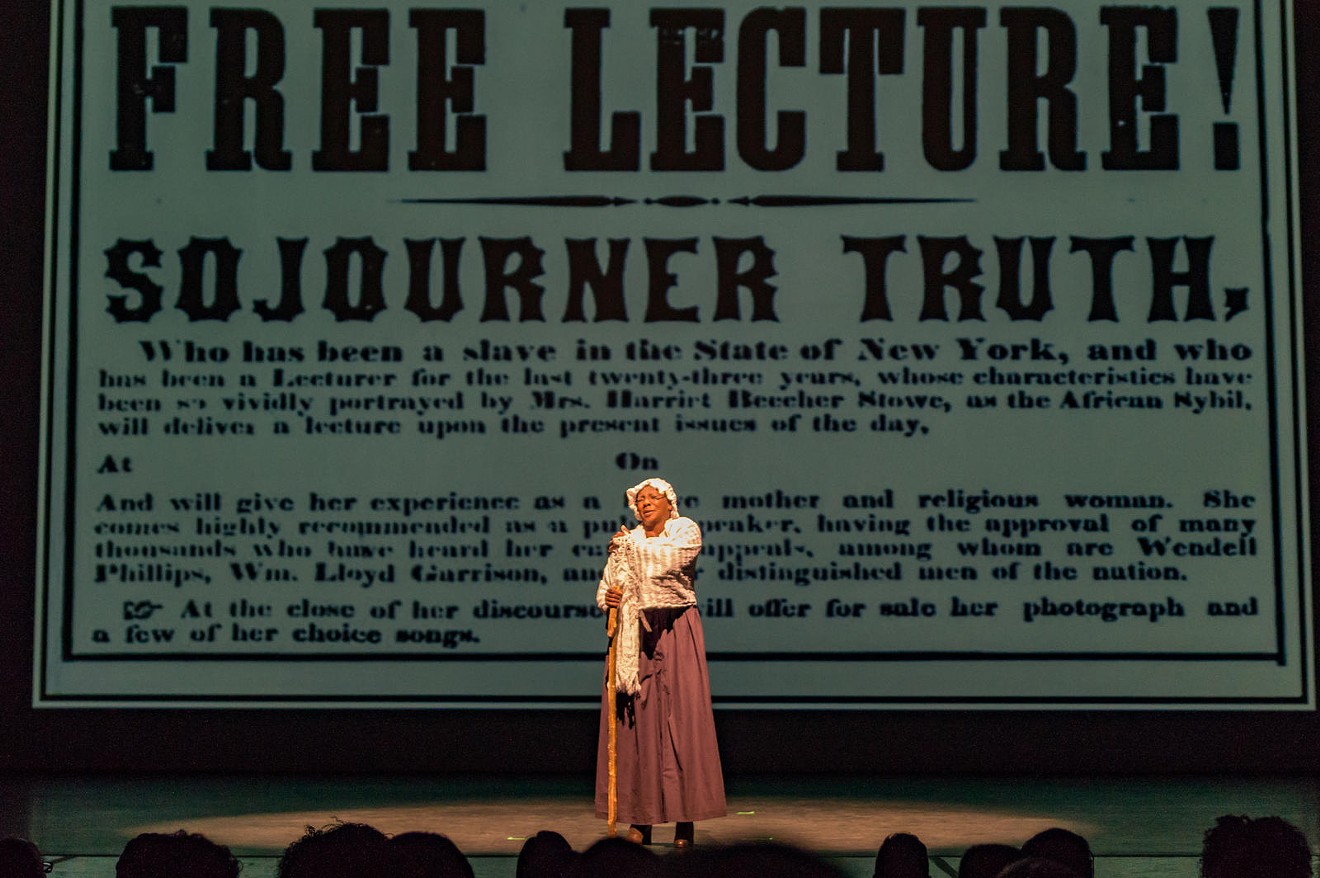This is how Kevvin Taylor, director and producer, describes the women from the play Black Women Walking, which returns to the Phoenix area for a few showings this month at Phoenix College and Estrella Mountain Community College.
The play takes audiences through a journey into the lives of 11 black women using music, dance, and digital storytelling.
Some of the women are more well-known like Rosa Parks, Olympian Wilma Rudolph, and activist Sojourner Truth; some are women that the younger generation may not be as familiar with, like Marian Anderson, a famed opera singer and the first African-American to perform at the Metropolitan Opera.
“These women in this show were warriors and their story needs to be told,” Taylor says.
Taylor is a graduate of Arizona State University and a Broadway League Fellow at Gammage. He adapted the piece 12 years ago from Lights, Drama, Worship, a book by Karen F. Williams about using theater to connect people to God.
He developed the work in the basement of Tanner Chapel, the oldest African-American church congregation in Arizona, as part of its performing arts ministry. Seventy-five percent of the cast members attend the chapel. Kevvin Taylor’s production company, Seek First Entertainment, calls itself a “faith-friendly family entertainment company.”
Deborah Margolis, who plays Rosa Parks, says the role has increased her faith because all the women portrayed in the show stand on their conviction in God.
“Each time that I go out to do the part, I’m very nervous,” Margolis explains. “Not nervous doing the part, but just nervous of the opportunity to express to the audience the importance of respecting yourself as an individual.”
She actually had the opportunity to meet Rosa Parks when the famed activist visited Tanner Chapel and Margolis was an usher. Now that she’s had the chance to play her, she says if given the chance, she would simply express gratitude.
“Thank her for being so bold that day in 1955 and not giving up her seat because when she made that statement, it helped all of us as people of color,” Margolis remarks.

Faith played a role in the development of the play and the lives of the women portrayed.
RAW SUN Photography
At its core, the play is about sharing pieces of history that usually aren’t told. Margolis estimates that if she had seen this play when she was younger, it would’ve helped her to be more confident as a black woman.
“I just know that if I had seen this it would’ve definitely enlightened me and my community to be able to know all these women and the roles in which they had a big impact,” Margolis says.
Taylor describes the play as “edutainment,” or a mixture of education and entertainment. To drive this point home, he’s partnered with the Maricopa Community College district to present the show and has had the performance in about eight colleges.
“[It’s] a way to supplement their education but also to be able to provide a history component and a women’s history component to their curriculum,” Taylor explains. “Because we know they serve a student body, but they also serve a community”
He hopes to stimulate dialogue with this work and notes that history can have a way of repeating itself when it’s not recognized or observed.
“We hope that the play creates a safe place for all backgrounds and all people to come together to understand [not only] who we are culturally but who we are as a people,” Taylor remarks.
Neal Lester is a member of the church where the play was developed and Founding Director of Project Humanities at Arizona State University. He believes it's significant that a black man is putting on this production because he’s using his power as an ally to uplift the women.
“I think it’s important that a woman wrote the play, but it’s refreshing to see that a black male has been promoting this in really, really strong and robust ways,” Lester declares. “[He’s] not trying to speak for these women but doing whatever he can to be an ally to put these voices forward.”
He notes that voices of women have not always been acknowledged, respected, or even heard and that we live in a society where men are the ones who have the authority to tell stories. He believes that the women in the play can be symbols of what other black women can accomplish.
“If you’ve got this notion that black women are walking, not necessarily running, but walking and being persistent in their goals and accomplishing things, that’s a reason for celebration,” Lester says.
Black Women Walking. 7:30 p.m. Friday, March 22 and Saturday, March 23, at Phoenix College's Bulpitt Auditorium, 1202 West Thomas Road; 602-285-7800; and Saturday, March 30 at Estrella Mountain Community College, 30000 North Dysart Road, Avondale; 623-935-8141; Tickets are $10 to $20 via Eventbrite.
Correction: Rosa Parks was arrested for civil disobedience in 1955. An earlier version of the story had the incorrect year.











